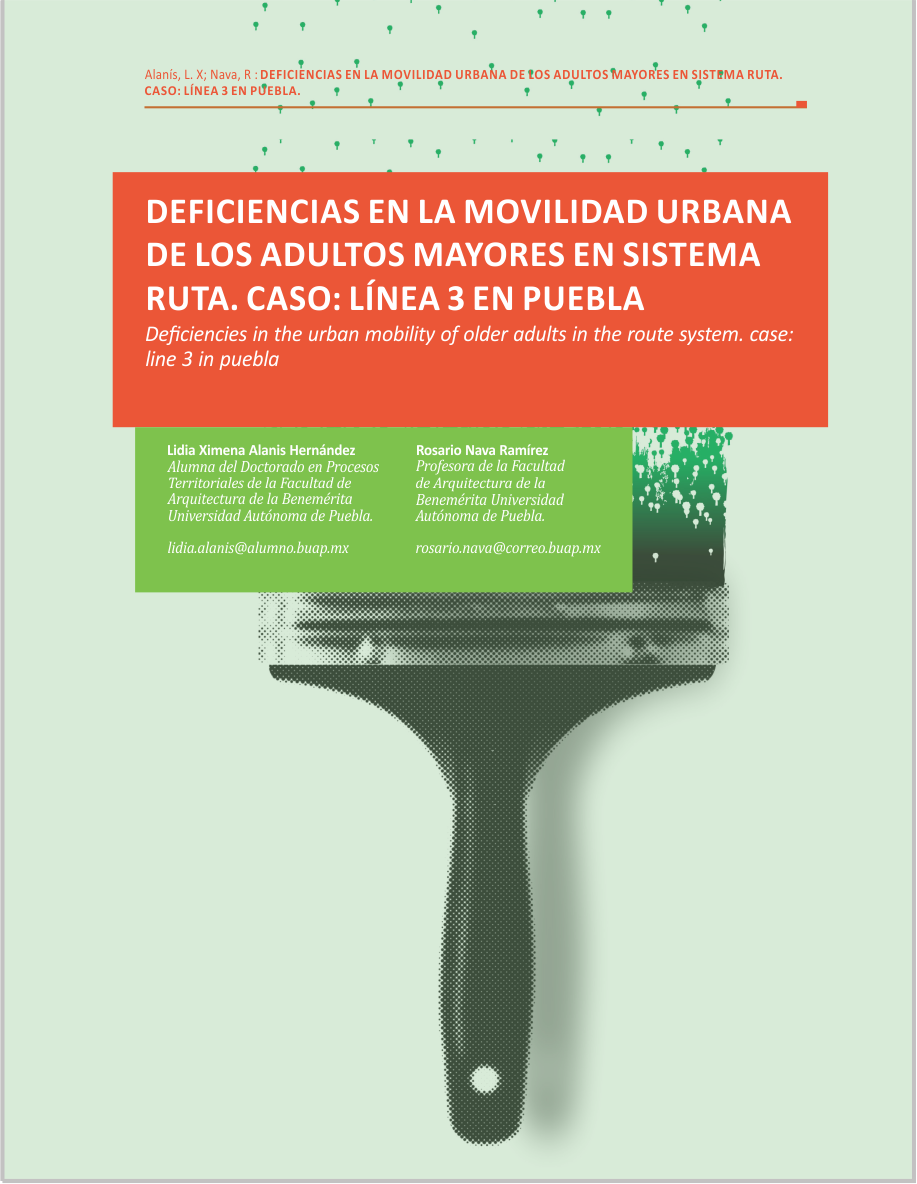Deficiencies in the urban mobility of older adults in the Route system. Case: Line 3 in Puebla

Published 2024-04-05
Keywords
- urban mobility for older adults,
- accessibility and urban mobility
How to Cite

This work is licensed under a Creative Commons Attribution-NonCommercial-NoDerivatives 4.0 International License.
Abstract
The present thesis research focuses on the topic of identifying the deficiencies of gerontological urban mobility within the system of the Urban Articulated Transport Network (RUTA) on line 3 of the city of Puebla. The general objective seeks to develop a gerontological study in the RUTA system, determining the deficiencies to generate urban mobility alternatives based on recommendations under the paradigm of sustainability as a real process. The theories that will be addressed are under the epistemological approaches of the paradigm theories of Kuhn (1962), complex systems of García (2006), complex thinking of Morin (1994); historical concepts of old age by Chaparro (2016), demographic figures from the INEGI (2020), the urban mobility of Alcántara (2010) and the gerontomobility model of Cataldi (2021), among others. The methodology is based on the construction of successive approaches by García (2013), in 5 stages using some techniques such as field trips, semi-structured interviews, bibliographic and management analysis. The results obtained so far show the exclusion of older adults within the management instruments and the data obtained in the interviews with social actors that have been applied so far. The conclusions presented are preliminary and the thesis is still in the process of development.
